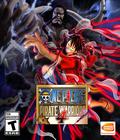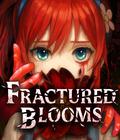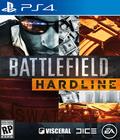The Battlefield series has always been about soldiers. The time periods have shifted from 1942 to 2142, and the locations have varied from deserts to urban sprawls. There's been a shift from a multiplayer-focused title to one that tries to balance it with a single-player component that, in the opinion of most, peaked with Battlefield: Bad Company. Despite all of these changes, the game has had you in the role of military personnel. Battlefield: Hardline is the first major title that's developed by Visceral Studios, makers of the Dead Space series, instead of series creator DICE. It is also the first one to change your role from a soldier to a cop.
In the campaign, you play the role of Nick Mendoza, a Miami detective who's deeply embroiled in the city's drug war. After a drug bust gone wrong, he's assigned to a new partner and asked to hunt for the source of a new cocaine cartel. What follows is a tangled web of crime and corruption that takes Nick from Miami to Los Angeles, and there are plenty of twists and allegiance changes along the way.
Told in an episodic manner similar to a TV show, the story follows the same beats as a standard action-oriented cop show, though with blood and cursing. The blood isn't gratuitous, but you see a dismembered body once, and there's enough cursing to make sensitive ears blush. Your cast of major characters is in a moral gray area almost all of the time, and Nick is the only one who seems to be on the good side. As far as plot goes, it's predictable in the sense that you'll have a good idea who's going to turn on you as the story progresses. Don't expect much in character development since things stay pretty straightforward most of the time. The excitement is in how the story unfolds.
Unlike the campaigns in the previous games, there's a nice sense of pacing in Hardline. Get past the prologue, and the story goes through ebbs and flows of high action and quieter, important story moments. There are some clichés that might make you roll your eyes and some really big set pieces just for the hell of it. Fighting in a crumbling mall or fighting against a well-armed militia seems par for the course. There a few sequences where driving is done in lieu of cut scenes, but for the most part, you're not going to find too many boring parts. There are situations where you have to ignore logic so you don't ruin the enjoyment. Some will argue that the story in Battlefield: Bad Company is better, but the one here is above what was churned out in the last few entries.
The gameplay in the campaign is standard Battlefield, but it's been modified to fit the cop setting. Nick can carry a maximum of two firearms, with the main weapon being a pistol and the secondary being a shotgun or semi-automatic rifle. Both can be modified with different scopes and barrels, but don't expect half of the stuff you'd find in other Battlefield games. Your melee weaponry falls in line with blunt objects like blackjacks, expandable batons, and nightsticks, and your grenades have been replaced with things like Taser guns and gas masks. Enemies tend to abide by these rules but carry better machine guns that you can procure from their dead bodies as well as smoke grenades and Molotov cocktails. Your health system is regenerative, checkpoints are generous, and you have plenty of loadout stations, where you can refill your ammo and change or modify weapons. Again, if you've played a campaign in recent Battlefield games, you have a good idea of what to expect from the basic mechanics.
There are two major things in the campaign that change things drastically. The first is the scanner, which is used as a multi-purpose tool since it lets you tag criminals and listen in on conversations. It's also a way to tag explosive items, weapon chests, case evidence, and criminals with warrants. Case evidence and criminals also level up your player in campaign mode and unlock special badges and items for multiplayer. The tags are permanent, and they persist even after death, so the scanner is very useful when you enter new areas.
The second major thing is the arrest system. Moving within a certain distance of a criminal lets you flash your badge, making them drop their weapons and giving you a chance to cuff them instead of kill them. You keep your weapon pointed at them to make sure they don't reach for a spare gun, but all of your attacks are disabled until they shoot first. This prevents the user from abusing the mechanic to score free kills. You can use the mechanic against up to three enemies at a time, though the move is best done with an AI partner since they can ensure enemies don't make sudden moves. Arresting someone doesn't make the game easier, since others will go on the offensive or go into alert mode.
With all of these things combined, Hardline gives the player some real choice in playing each episode of the game. The standard run-and-gun approach works just fine, and with the exception of a few scripted parts, you can play the game like this without much penalty. Seeing smaller cover spots and structures get shot is exciting and makes firefights feel more stressful. If you utilize the stealth option and arrest everyone without initiating firefights, it works and is more satisfying since your character levels up faster and therefore unlocks things at a faster rate. Unlocking more guns and gun parts as you level up is interesting, since it tempts you into shooting more than sneaking, but the new firearms can be useful if the stealth option goes south. You can mix up things to your liking, but both approaches work, and as a result, the campaign feels more substantial.
Stealth is a great addition, but players who love sneaking around shouldn't expect a high-caliber experience. Enemies are sensitive to sounds of you throwing rocks or empty shell casings to catch their attention, but the shouts of people getting arrested or your partners talking doesn't move them at all. Unless you're running full-tilt at enemies, footsteps don't distract them, and walking into their cone of vision only makes them suspicious. Firing a weapon is the only thing that gets an enemy to quickly go from a calm state to attack mode. They're oblivious to your partner's presence, and there's the issue of them not bothering to patrol an area, forcing you to push them into more open spaces to take the free arrest. Going full stealth in this game can be a fun change of pace, but don't expect something as polished as Dishonored.
Though Hardline has made great strides in improving the single-player content, most players will immediately hit the multiplayer. As mentioned in Adam's preview article from EA's multiplayer event, the game has nine different multiplayer maps at launch, and a bevy of multiplayer modes are equipped to handle groups both small and large. As expected, players have a leveling system that is different from the campaign mode's leveling, though those who play through the campaign and go through the side-quests will have an advantage since they'll have more cosmetic options and more bags. The bags, which come in tiers, contain a range of things, from badges and weapon camo to vouchers for weapon augmentations. The bags usually contain temporary boosts that can be used in a match for things like higher XP gain, more cash, and increased speed.
At first glance, the multiplayer portion feels like a cops-and-robbers reskin of Battlefield 4. The weapon sets feels different from the campaign, though the Taser and frag grenades are a standard part of any loadout. The available weapons feature some military-grade weapons, like long-range sniper rifles and assault rifles with good clips and great range. You can even perform freebase jumps from buildings or helicopters and drive turret-equipped SUVs. Put it next to Battlefield 4, and the only way a casual player can tell them apart is this title's lack of heavy-duty vehicles like jets and tanks.
The basic Team Deathmatch and Conquest modes still benefit greatly from the destructible walls and statues, since it opens new passageways and shooting opportunities. The sheer number of people makes the matches hectic and fun, and while classes are here, only a few feel like they're special beyond the initial loadouts. Hacking, which is this title's version of Commander mode, is fun if you like assisting over direct action, but it is limited to unranked matches to keep everything fair. It can turn competitive if two hackers are in a match since they battle each other's hacks while making sure to provide support.
Though the old modes will be popular due to their familiarity, the new modes are fun in their own right. Rescue is familiar if you've played other competitive multiplayer games, and the same goes for Heist, as you're trying to bring items or people back to your base — or preventing the enemy from doing so. Heist is designed for large numbers of players, while Rescue is tense due to the smaller numbers involved. The same goes for Crosshair, a VIP-style game for smaller crowds that gets good if you have a VIP who knows how to hide and sneak to the goal line. Blood Money is frantic since you worry about your safe as well as the infinite money pile in the middle of the map. Think of it as a competitive version of Payday: The Heist, only with fewer steps and no worry about escaping. The most fun new mode is Hotwire, since it uses vehicles as mobile flags that can be destroyed and used as weapons. The maps are large enough to go on a joyride, but you can still easily get shot up if you aren't paying attention.
The multiplayer modes of Battlefield have always been considered solid, but after the online launch performance of Battlefield 4 and the launches of many high-profile games in the last few months, people have been apprehensive. The PS4 might not have had pre-release via EA Access, but performance held up rather nicely on a full server with hackers on both sides. At the midnight launch, with more servers opening up and more people coming in, things seemed to hold steady. Only a few servers displayed a waiting queue after reaching capacity. Performance in each game mode was smooth in high- and low-population situations, and I only had one instance of a network hiccup, which caused a character to glide around for a bit before dropping dead. On the morning of launch, the situation was the same, with even more servers and people populating the lists. Even with some poor connections being reported, gameplay was responsive. The server and online performance throughout the day told the same story. As more people came in and more servers populated the list, performance stayed smooth. With no other incidents reported on any platform thus far, it's safe to say that the online launch has been good.
Graphically, Hardline is impressive but slightly uneven. The environments are done well, with pop-up for objects and some textures in the later, more open levels. Character animations are very nice, especially in terms of spoken words matching the lip-synch. The same goes for the textures, and the team seems so enamored with the way the skin turned out that you get tons of close-ups. The game also shows off lots of particles in the dust and sparks, and the lighting effects show up at odd times, such as sparks flying when you jam your crowbar in a metal door. As far as frame rate goes, it often bounces between 30 to 60, with cut scenes going to 30 while gameplay shifts to 60. It drops to around 30 when areas are more open, but the drops are pretty tolerable.
By that same token, the sound is top-notch. The voices are especially great with notables like Kelly Hu, Benito Martinez, and Fred Tatasciore lending their pipes to the game and giving solid performances. The game doesn't fall into the habit of having partner characters bark at you when you deviate from the normal path, so partner dialogue is actually meaningful when you hear it. Thanks to the limited pool of quotes when criminals get arrested, you will hear the same phrases for character models that somehow don't match. Sound effects are loud and bombastic as expected, while the score does well in providing an action-packed cop drama vibe. There are also some licensed songs that do a good job of heightening the drama and situations. The opening drive sequence with Public Enemy's "Welcome to the Terrordome" and Ted Nugent's "Stranglehold" playing in the desert fit well, though a few tracks, like KRS-One's "Sound of Da Police," feel out of place when you consider the subject matter and the song's real meaning. In multiplayer, those songs are a source of levity as, like Grand Theft Auto, you can drive around and change songs to whatever suits your mood.
Battlefield: Hardline might not help the series evolve, but it is a solid game. The campaign is very well done and hopefully signals a trend in terms of crafting it into something that's worth checking out. The multiplayer may not stray too far from the base games, but whether you're actively in the battle or a hacker helping out in the shadows, the new modes are great. The overall presentation could use some stabilization, but it's quite good. The multiplayer at launch is certainly more stable, and that shows the right people were listening. Unless you're burned out on Battlefield, Hardline is a good entry to try.
Score: 8.0/10
More articles about Battlefield: Hardline










 Battlefield: Hardline switches the franchise standard of military themed action for a more urban environment with the player taking part in a police-oriented adventure.
Battlefield: Hardline switches the franchise standard of military themed action for a more urban environment with the player taking part in a police-oriented adventure.














































